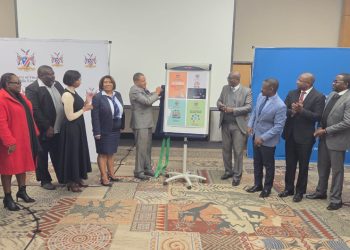
The Namibian government has disclosed that 1.4 million people are currently benefiting from the national drought relief programme, which assists over 384,935 households across all 14 regions.
Prime Minister Saara Kuugongelwa-Amadhila provided the update in response to a parliamentary inquiry from Member of Parliament Josef Kauandenge, highlighting the programme’s expansion to include malnourished households.
“Following the Cabinet decision to include malnourished households in the drought relief programme, a total of 1,835 households from five regions—/Kharas (744), Khomas (111), Omaheke (738), Omusati (66), and Oshana (176)—have been assisted,” Kuugongelwa-Amadhila said.
In addition, the government is supporting 23 soup kitchens in the Omaheke region under the programme.
The Prime Minister also referenced a collaborative initiative launched in October 2023 in response to malnutrition-related deaths in the Omaheke region.
“In the aftermath of the unfortunate deaths in Omaheke, a collaborative initiative was launched to enhance access to quality nutrition and protection services for vulnerable populations in Omaheke, Khomas, and Kunene regions. The goal is to promote health, development, and wellness, while reducing preventable deaths and addressing inequities,†she said.
The initiative has so far benefited over 9,204 pregnant and lactating mothers. To improve access to nutrition services, the government has strengthened Maternal and Child Health (MCH) days and outreach health services.
Additionally, 72 community health workers have been trained to increase nutrition awareness, backed by a Nutrition Hotline designed to address complex inquiries.
Meanwhile, the government has also expanded the Conditional Basic Income Grant (CBIG) programme. Initially implemented in 20 urban and peri-urban areas from November to December 2024, the initiative has registered an additional 15,000 households.
A total of 21,697 households are now receiving CBIG support, up from the initial 8,328 households that transitioned from the government’s food bank programme.











